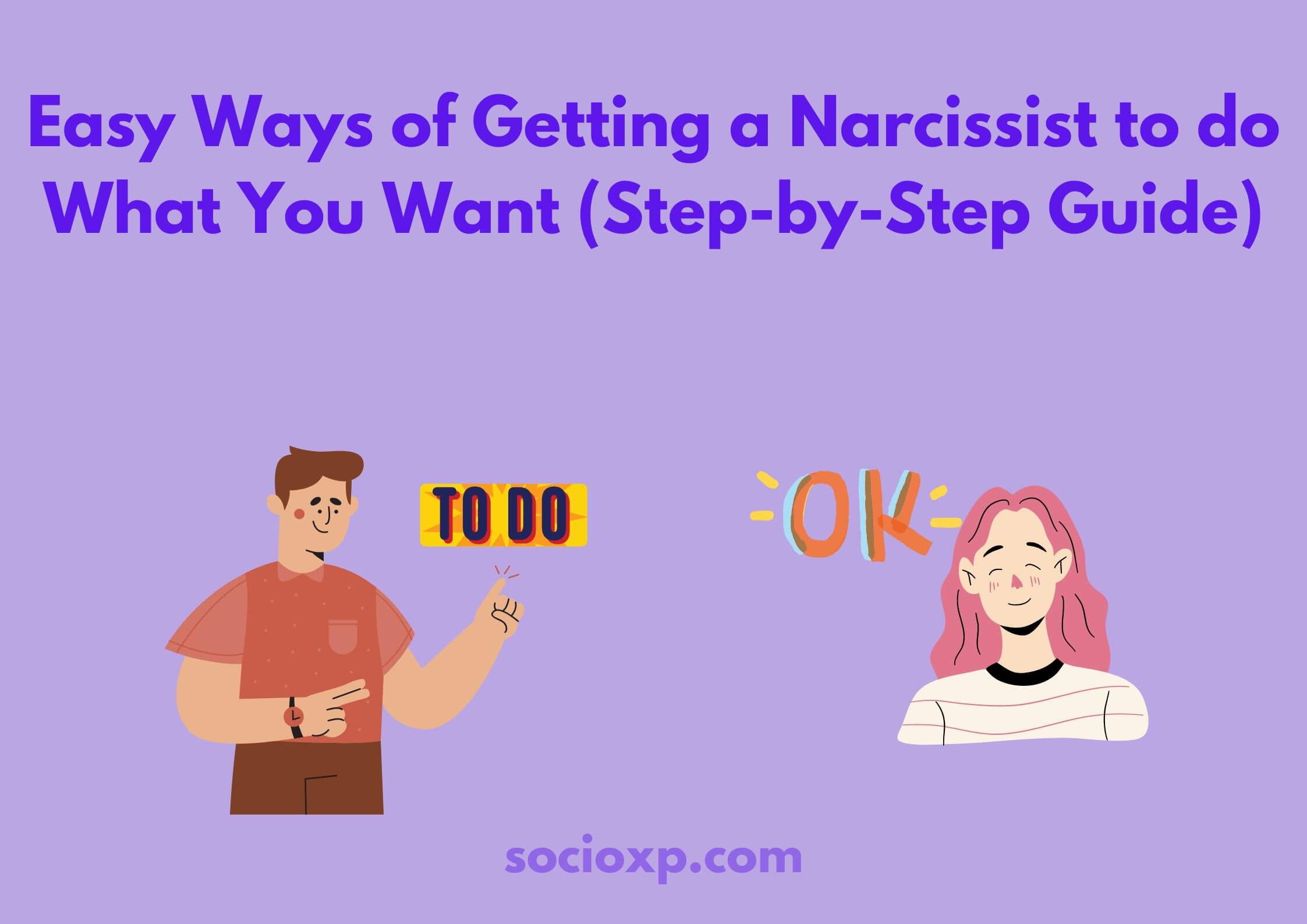The Narcissistic Therapist – Can There Be A Good Narcissistic Therapist?
Have you ever come across a narcissistic therapist? You may not realize this as soon as you get into therapy, but narcissistic therapists do exist and they can be lethal as with a narcissist in the picture, healing may get sidetracked and you may become a part of their manipulative ways and methods.
Narcissistic therapists are like the wolf in sheep’s skin, they would manipulate you into believing something that may not be fruitful for you. Thus many people prefer them as they come across as more self-assured, appealing, and confident than others.

Narcissistic therapists make sure that they only suggest what their clients wish to hear. They do this to be liked by their client, even if it harms their relationships.
As Narcissism exists on a spectrum, it is on a wild spread in modern times. From normal, and healthy, to a little toxic, pathological, and fully blown unhealthy; it exists on a spectrum or a continuum that can only be clinically tested.
Thus the possibility of you coming across a narcissistic therapist has higher chances. Anyone can come across a narcissistic therapist as even the field of healing and mental health issues are not free from the influence of narcissism.
All about the Narcissistic Therapist
How well do you know or trust your therapist? Have you ever felt that the therapy sessions were not working out for you? Have you ever had that hunch that your therapist is a little misleading or deceiving? Then there is the minutest chance that your therapist can be a narcissist. Here are a few signs of a narcissistic therapist in case you may need to check them out.

However, the feeling that therapy is not working for you is not uncommon. Some people may have this constant feeling that therapy may not be working out for them due to their dissatisfaction and lack of effort.
What is a Narcissistic Therapist?
A narcissistic therapist possesses all the traits of a narcissist. Even though they are in the field of healing, they may never truly come across as healers or problem solvers as narcissistic therapists are like hollow bunnies.
They lack empathy, have an inflated sense of self-importance, and may influence you negatively. They may seem confident from the outside or from afar, but once you go near or get to know them thoroughly, you may come to a realization that they may not truly be helping you or leading you toward healing.
Narcissistic therapists do not care about their clients, their feelings, their thoughts, and their perception of relationships, all they care is about how they can keep their clients engaged with whatever they can provide, just to keep the money coming.
Now, many people would choose narcissistic therapists specifically just because they seem confident, self-assured, and convincing. Even though their methods may not be truly great or as effective as other therapists, just their competency is alluring and assuring for clients.
Despite being preferred by many clients, it can be concluded that narcissistic therapists do not fit perfectly into the role of a therapist, who deals with mental health crises, heals people from trauma, or helps them be a better person, because how can someone who lacks empathy, care and concern heal others?
Narcissists are selfish people who would put themselves first and benefit the maximum of people. So the idea of narcissistic therapists may come across as superficial or cliche idea while for some people it may be a worthwhile experience.
Signs of a Narcissistic Therapist
A narcissistic therapist may not be as effective as a normal therapist and also their thoughts might not match with your approach towards your relationship. However there are chances that you may come across a narcissistic therapist, so better be prepared.
These signs may help you recognize the toxic individuals. However, it may take a while to recognize them, but once you do you can act appropriately.

1. They lack empathy and thus engage in victim-blaming and shaming
A narcissistic therapist may or may not be able to provide healing to their clients, may not be able to fully validate their emotions, may rush the healing process or even force them to get past the complete situation rather than providing time and a rational solution.
2. They are dominant, haughty and patronizing
Narcissistic therapists may trap you in a loop of negatives where they focus on your shortcomings and flaws rather than help you overcome them or be a better person. They may also try to humiliate you indirectly by invalidating your thoughts and making you feel shameful, guilty, and vile.
3. They may favor your abuser and may gaslight you
Narcissistic therapists often find comfort and side with other narcissists. They see themselves in other abusers and thus they may side with your abuser, and gaslight you to feel guilty and low about yourself. They may make you believe that you are the pathological one in the relationship and thus your emotional turmoil is your responsibility.
4. They might isolate you from the outer support
When you try seeking help from others, the narcissistic therapist may feel that their opinion is being double-crossed or double-checked with others and thus this can hurt their ego. So to compensate they might try to isolate you from your other support systems which may include your family, friends, or anyone who ay close to you.
5. They violate boundaries
The most pronounced and transparent sign of a narcissistic therapist is that they may often try to violate your boundaries. They may continuously ask regarding topics that may make you uncomfortable or may also force you to discuss something that you may have denied continuously.
6. They boast about themselves
They always speak highly of themselves and would keep minimalizing your worth by proving with passing statements how great they are.
7. They would humiliate you in the first meeting itself
A narcissistic therapist may humiliate you or make your problems look like they are nothing just because they wish to boost their ego.
What motivates a narcissist to become a therapist?
There are many guiding factors for the narcissist to get into the field of mental health disorders and healing. Different people may be motivated by different factors, yet some common motives can be,
They may have bad experiences in the past regarding therapy sessions and the person doing that, and thus they may become one to control and mend their experience.
They may view the work of providing therapies as a means to build their ideologies and feel superior and empowered.

Some narcissists may be so obsessed with the idea of controlling others that they may become therapists so that they can impose their ideas and beliefs on others.
Narcissists often feel lonely and left out at times due to their challenging nature, thus they may choose to be therapists so that they are visited by their clients.
They may want to feel superior as their life may seem perfect while others may be suffering.
What to believe the reason may be, that it may not be approving if the narcissistic therapist is motivated by their own needs and greed rather than caring for their client’s interests and betterment.
Are Narcissistic Therapists Unfit for Their Work?
It is not true that all narcissists are bad therapists, it may be just they might not be able to get to the depth of the emotional problems as they have issues dealing with emotions. Again not all narcissists may be the same, but most of them are.
Some people detest the idea of a narcissistic therapist, while some prefer narcissistic therapists over others. It may in a way a matter of choice for the people seeking therapy, but if they lack the basics of a therapy session, they may come across as “Unfit” for the role of an effective therapist.

Some people believe that narcissistic therapists are not a good idea because they lack empathy and cannot efficiently deal with emotions. There are a few reasons which can make the narcissist unfit for the work of therapy,
Those reasons include,
- They lack emotional support in the form of empathy.
- Their intent may not be to help you heal but to keep you in the loop of gaining money.
- Feel entitled to certain behavior and display grandiosity.
Difference between healthy narcissism and unhealthy narcissism
The fine line between a good and a bad narcissistic therapist is their motivation to be a therapist. If narcissist has unhealthy motivations, then they may be unfit for the role of a therapist.
As Narcissism exists on a spectrum, it is on a wild spread in modern times. From normal, and healthy, to a little toxic, pathological, and fully blown unhealthy; it exists on a spectrum or a continuum that can only be clinically tested.
A narcissistic therapist with healthy narcissism or someone on the lower side of the spectrum is aware of their weaknesses, strengths, and ability to help and heal others. They are genuinely concerned for others, feel an emotional connection, are empathetic, and maintain healthy boundaries with their clients, despite displaying a few narcissistic traits.
While, someone on the higher end of the spectrum, may wish to become a therapist just to control others, manipulate them, feel entitled, and seek advantage of other people’s emotional dependency.
So how to discriminate between a fit and an unfit therapist?
The crucial aspect to look for while searching for a therapist is to make sure that they are aware of your strengths and weaknesses. They are good listeners and not blabbermouths. And most importantly they can connect with you on a deep emotional level.
Can There Be A Good Narcissistic Therapist?
Absolutely yes! People who are honest with themselves and others, are self-aware, can build an emotional connection, feel guilt or repentance, maintain healthy boundaries, and wish to help others despite having some narcissistic traits can become good narcissistic therapists.
Final Thoughts
The fine line between a good and a bad narcissistic therapist is their motivation to be a therapist. If narcissist has unhealthy motivations, then they may be unfit for the role of a therapist.
The crucial aspect to look for while searching for a therapist is to make sure that they are aware of your strengths and weaknesses. They are good listeners and not blabbermouths. And most importantly they can connect with you on a deep emotional level.
Can There Be A Good Narcissistic Therapist? – Absolutely yes! People who are honest with themselves and others, are self-aware, can build an emotional connection, feel guilt or repentance, and wish to help others despite having some narcissistic traits can become good narcissistic therapists.
It is not true that all narcissists are bad therapists, it may be just they might not be able to get to the depth of the emotional problems as they have issues dealing with emotions. Again not all narcissists may be the same, but most of them are.
- How To Make A Narcissist Discard You And Leave You Alone? - March 21, 2024
- Narcissistic Supply: 9 Signs You May Be Someone’s Narcissistic Supply - March 11, 2024
- Narcissistic Abuse And Anxiety – 11 Symptoms of Narcissistic abuse-induced anxiety - March 9, 2024


